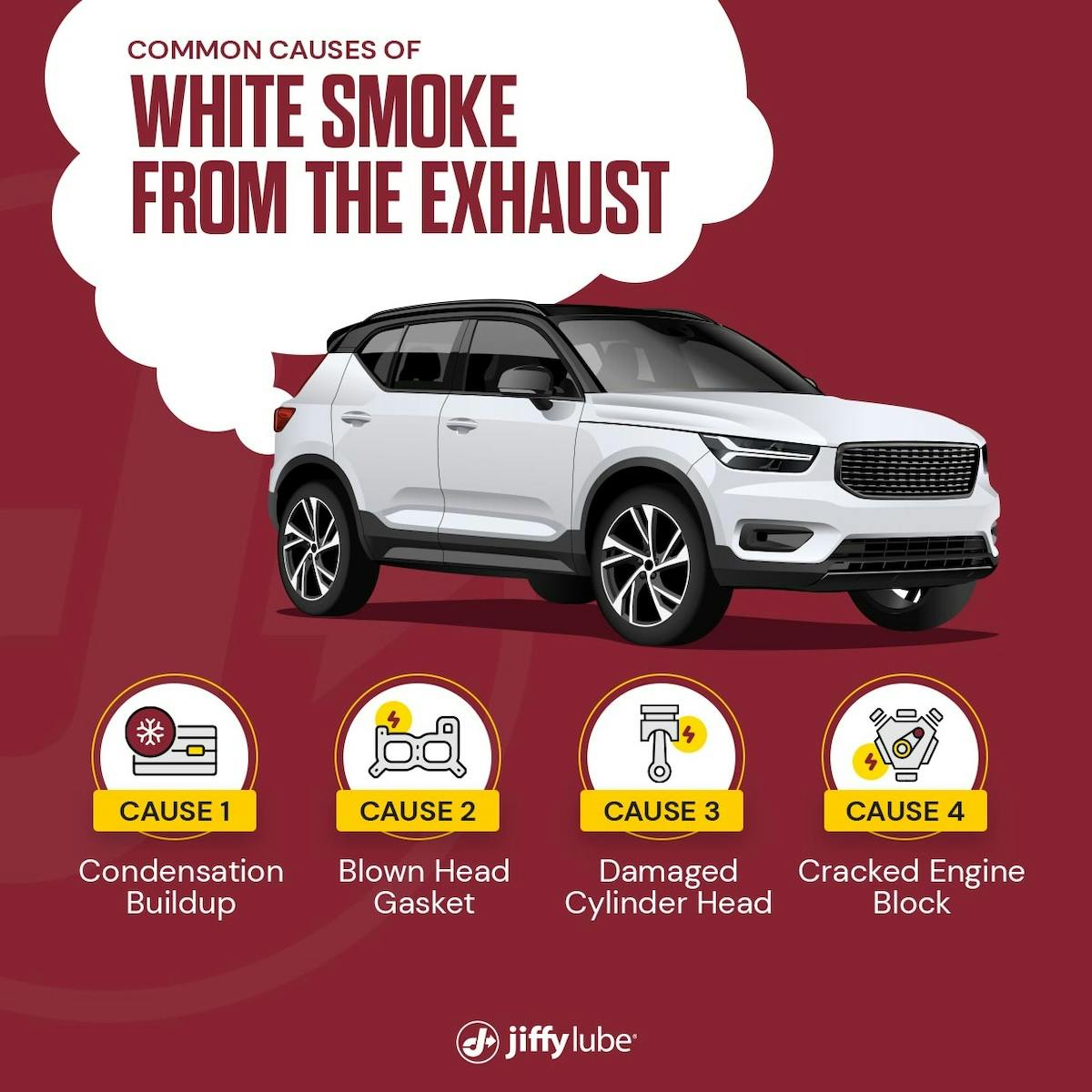Spotting white smoke coming from your vehicle's exhaust might just send you into a tailspin of worry. But before you hit the panic button, let's break it down. Sometimes, that smoke is just your car saying, "Good morning!" Other times, it's waving a red flag. In this blog, we’ll dive into the common causes of white smoke from the exhaust and how to tell when it's a minor issue versus a sign of a major problem.
Common Causes of White Smoke from the Exhaust
White smoke from a vehicle's exhaust can indicate several issues ranging from minor to severe, including:
Cause 1: Condensation Buildup
If you notice thin white smoke coming from the exhaust, especially during cold mornings, it’s okay! It's most likely condensation buildup.
The science? Your vehicle's exhaust system cools down overnight, and in cooler environments, the moisture in the air can condense on the inner walls of the exhaust system. When you start your vehicle, the exhaust system heats up, evaporating the water and causing steam to exit the tailpipe — i.e., white smoke. After the water has fully evaporated from the exhaust system, the “white smoke” should dissipate.
Cause 2: Blown Head Gasket
A head gasket is an essential component that seals the engine’s combustion chamber, preventing oil and coolant (aka: radiator fluid) from mixing and ensuring maximum compression to maintain engine power. When this gasket fails, coolant can leak into the combustion chamber. The result? A white smoke that’s thick, persistent, and carries a sweet aroma.
A blown head gasket can result from engine overheating, possibly due to a malfunctioning cooling system or wear and tear over time. This issue is far more concerning than condensation buildup because continuing to drive with this issue can lead to significant engine damage, including a warped or cracked cylinder head, which is more expensive and complex to repair.
Cause 3: Damaged Cylinder Head
A critical component of your vehicle's engine, the cylinder head forms the top of the combustion chamber and houses essential mechanisms such as valves and spark plugs. When it's damaged, the cylinder head can crack or warp, which may allow coolant to seep into the combustion chamber. Just like with a blown head gasket, this seeping coolant may burn alongside the fuel and air mixture, producing a white smoke that's thick and sweet-smelling.

A cracked or warped cylinder head is a serious problem that can cause extensive engine damage if left unchecked, including overheating, loss of power, poor fuel efficiency, and potentially catastrophic engine failure. If you notice white smoke from your exhaust and suspect a damaged cylinder head, have a professional inspect your vehicle immediately to prevent further damage.
Cause 4: Cracked Engine Block
The engine block is the backbone of your engine, housing the cylinders and their components. It's built to withstand tremendous pressures and temperatures, but it can develop cracks under extreme conditions or due to age. These cracks can allow coolant to leak into the combustion chamber, producing that thick, sweet-smelling smoke just like with a damaged cylinder head or blown head gasket.
This issue is a major concern and can lead to several engine problems, including overheating and reduced performance. Worst case scenario: Engine failure might occur as a cracked engine block may leak oil, leading to insufficient lubrication of the engine components.
Visit Your Local Jiffy Lube for Auto Maintenance Services
So, here’s the bottom line. If you see thin, white smoke from your exhaust, it’s most likely harmless condensation buildup. However, if the white smoke is thick and sweet-smelling, coolant may have leaked into your combustion chamber due to a damaged head gasket, cylinder head, or engine block.
If you notice this white smoke, don’t delay! Bring your vehicle to your local Jiffy Lube for automotive maintenance services. A trained technician can quickly diagnose the cause of the white smoke and recommend the best course of action for your vehicle. They'll help ensure your vehicle is repaired efficiently and safely, getting you back on the road with confidence.
NOTE: Not all services are offered at all Jiffy Lube service centers. Please call ahead or check jiffylube.com to ensure the service is available at the Jiffy Lube location near you.


